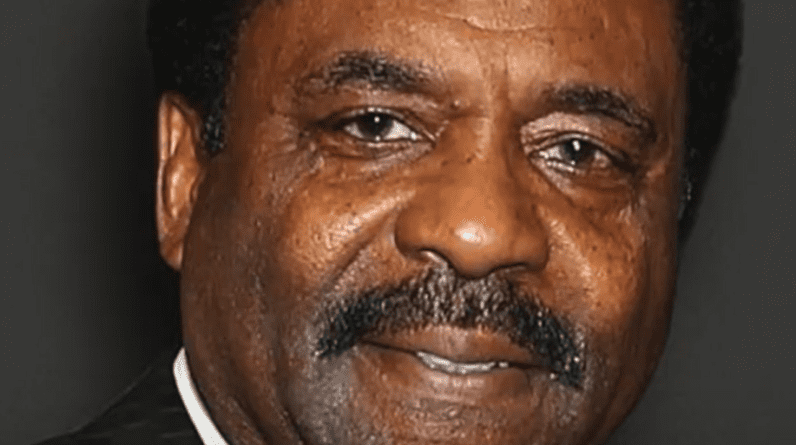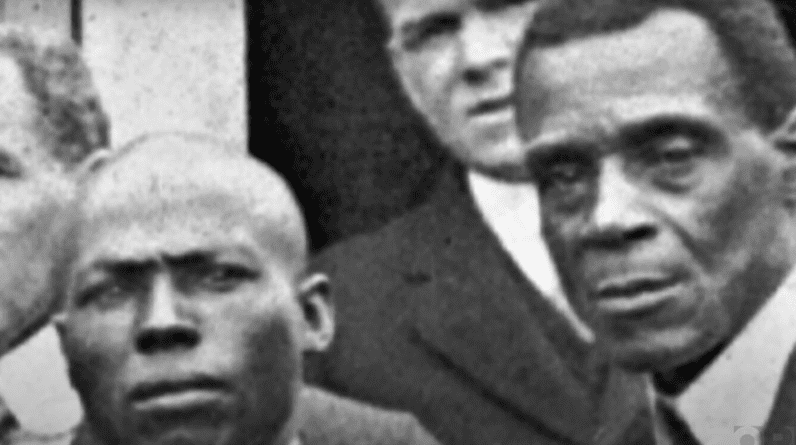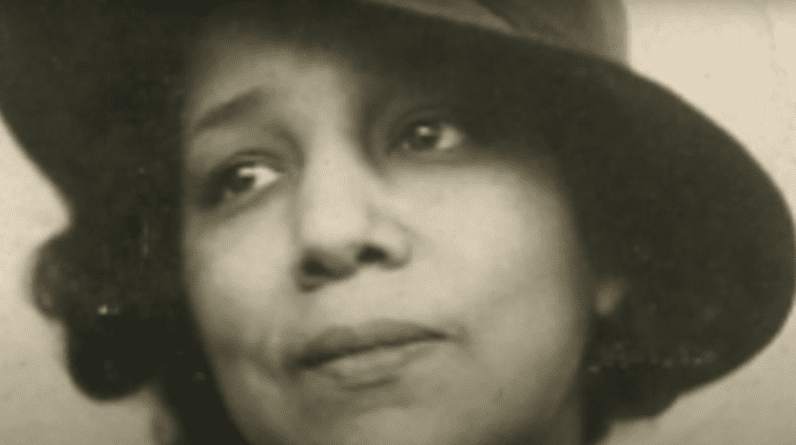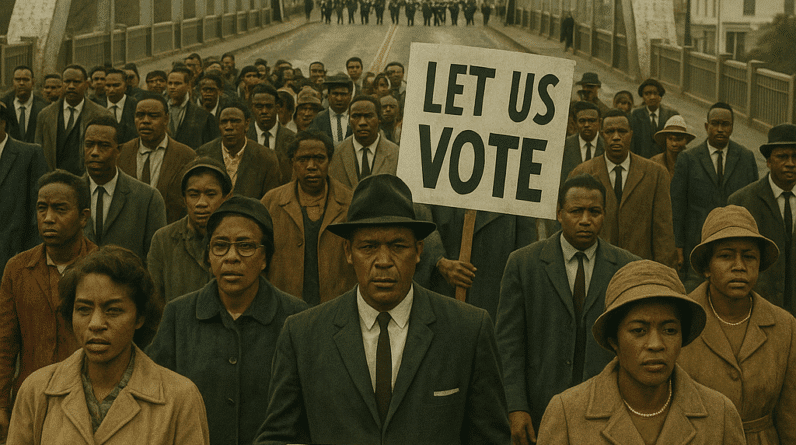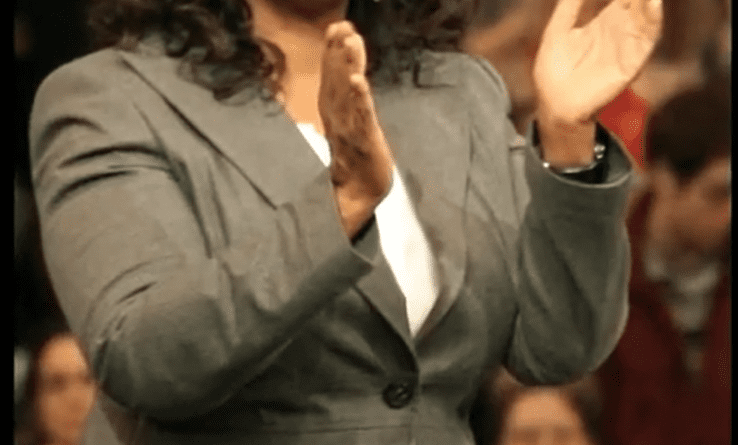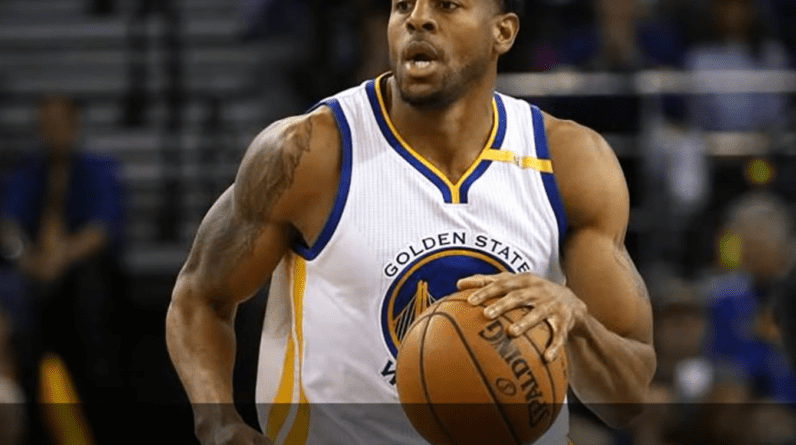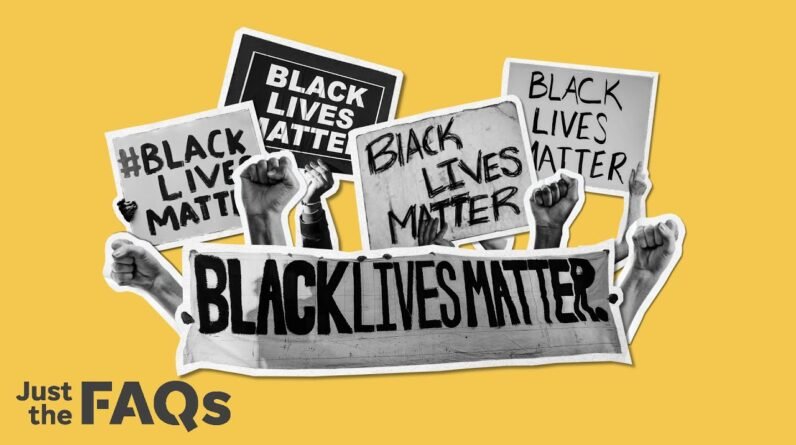
What Is The Black Lives Matter Movement?
What Is The Black Lives Matter Movement? The Black Lives Matter movement, often referred to as BLM, is a powerful and impactful social movement that aims to address and combat racial injustice and inequality. With its roots dating back to 2013, BLM has gained widespread recognition and support worldwide. Its primary focus is on advocating for the rights and lives of Black individuals and communities who have historically faced discrimination and systemic racism. Through peaceful protests, activism, and community engagement, BLM seeks to bring about meaningful change and create a more inclusive and equal society for all.
Overviewhttps://howtoplaythedjembedrums.com/wp-admin/post.php?action=edit&post=11146
Definition of the Black Lives Matter (BLM) Movement
The Black Lives Matter (BLM) movement is a social justice movement that advocates for the rights, equality, and dignity of Black individuals. It is a call to end systemic racism, address police brutality, and promote racial justice. The movement seeks to challenge and dismantle the structures and systems that perpetuate racial inequality and oppression.
Origin and Background of the Movement
The Black Lives Matter movement originated in 2013 following the acquittal of Trayvon Martin’s killer, George Zimmerman. Three Black women activists, Alicia Garza, Patrisse Cullors, and Opal Tometi, used the hashtag #BlackLivesMatter to spread awareness on social media about the injustices faced by the Black community.
The movement gained traction and visibility in the wake of other high-profile cases of police brutality, such as the deaths of Michael Brown in Ferguson and Eric Garner in New York City. It has since grown to become a global movement, with activists and supporters advocating for racial equity and justice in various countries around the world.
Key Objectives and Goals
Advocating for Racial Justice
One of the key objectives of the Black Lives Matter movement is to advocate for racial justice. This involves challenging systemic racism, dismantling discriminatory policies, and ensuring that Black individuals are treated with dignity, respect, and equality in all aspects of life. The movement aims to bring about systemic change that addresses the root causes of racial inequality and injustice.
Addressing Police Brutality
Another important goal of the movement is to address and end police brutality. Black Lives Matter seeks to hold law enforcement accountable for the excessive use of force and violence disproportionately experienced by Black people. The movement calls for the implementation of stricter regulations, improved training, and increased transparency in police departments to prevent unjust killings and racial profiling.
Challenging Systemic Racism
The Black Lives Matter movement aims to challenge and dismantle systemic racism that permeates various institutions and systems. This includes advocating for reforms in the criminal justice system, education, employment, housing, and healthcare sectors. The movement works towards creating equitable opportunities and resources for Black individuals by addressing the structural and systemic barriers they face.
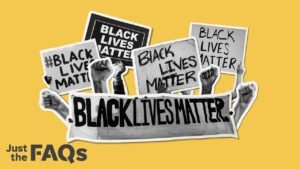
Promoting Equality and Equity
Promoting equality and equity is a central objective of the Black Lives Matter movement. It seeks to create a society where everyone, regardless of their race, has equal access to opportunities, resources, and social justice. The movement advocates for policies and practices that promote fairness and justice, recognizing that true equality requires not only equal treatment but also equitable distribution of resources and opportunities.
Key Messages and Demandshttps://howtoplaythedjembedrums.com/wp-admin/post.php?action=edit&post=11154
Endorsement of the Movement’s Core Principles
The Black Lives Matter movement has a set of core principles that emphasize the value and dignity of Black lives. These principles include advocating for justice, inclusivity, and empathy. The movement calls for individuals and organizations to endorse and uphold these principles as a starting point in addressing racial inequality and injustice.
Demands for Policy Changes and Reforms
The Black Lives Matter movement demands policy changes and reforms to address systemic racism and police brutality. These demands include defunding the police, reallocating funds towards community programs and resources, demilitarizing law enforcement, implementing police accountability measures, and investing in education, healthcare, and social services that benefit marginalized communities.
Organizational Structure
Decentralized Leadership Model
The Black Lives Matter movement operates on a decentralized leadership model, which allows for grassroots organizing and activism at the local level. This structure empowers individuals and local chapters to address the specific needs and issues within their communities while maintaining the overall vision and goals of the movement.
Black Lives Matter Global Network
The Black Lives Matter Global Network serves as the central organizing body that provides guidance, resources, and coordination among the various local chapters and affiliated organizations. It ensures that the movement’s core principles and goals are upheld while fostering collaboration and solidarity among activists across different regions.

Local Chapters and Affiliated Organizations
The Black Lives Matter movement comprises numerous local chapters and affiliated organizations that work at the community level to address racial inequality and injustice. These chapters and organizations organize protests, advocacy campaigns, and community initiatives to bring about change and promote the movement’s objectives. This localized approach allows for tailored strategies and actions that address the specific needs and challenges faced by different communities.
Core Principles and Values
Dignity and Respect for Black Lives
One of the core principles of the Black Lives Matter movement is the recognition of the inherent dignity and worth of Black lives. The movement affirms the right of Black individuals to be treated with respect, fairness, and equality, challenging the systems and structures that undermine and devalue their lives.
Intersectionality
The Black Lives Matter movement recognizes and addresses the intersecting forms of oppression and discrimination faced by Black individuals. It advocates for an intersectional approach that acknowledges the unique experiences and struggles of Black women, LGBTQ+ individuals, and other marginalized groups within the broader Black community. By centering intersectionality, the movement aims to create inclusive spaces and platforms that amplify diverse voices and perspectives.
Women, Queer, and Trans Affirming
The Black Lives Matter movement is committed to acknowledging and affirming the experiences of Black women, queer, and trans individuals. It aims to challenge patriarchal norms and practices that perpetuate systemic oppression within the Black community and society at large. The movement advocates for the empowerment and liberation of all Black individuals, promoting inclusivity and equality for all.
Collective Value
The Black Lives Matter movement values collective action and community solidarity. It recognizes the power of grassroots organizing, collective resistance, and collaboration to bring about meaningful change. The movement emphasizes the importance of individuals coming together, supporting one another, and working towards a common goal of racial justice and equality.

Intergenerationality
The Black Lives Matter movement actively engages individuals of different generations, recognizing the value of intergenerational collaboration and learning. It appreciates the wisdom, experience, and perspectives of older activists while providing space and opportunities for young activists to participate, lead, and shape the movement’s future. This intergenerational approach ensures the longevity and sustainability of the movement.
Protests and Activism
Street Protests and Demonstrations
Street protests and demonstrations have been a significant form of activism within the Black Lives Matter movement. These protests serve as a platform for individuals to voice their grievances, demand change, and raise awareness about racial injustice. They also create opportunities for community building, coalition-building, and solidarity among activists and supporters.
Social Media Activism
Social media has played a pivotal role in the Black Lives Matter movement, enabling widespread dissemination of information, mobilization of supporters, and coordination of actions. Hashtags, such as #BlackLivesMatter, #SayTheirNames, and #BLM, have become powerful tools for raising awareness, sharing stories, organizing events, and advocating for change. Social media activism has allowed individuals to amplify their voices, connect with like-minded individuals, and exert pressure on institutions and decision-makers.
Awareness Campaigns and Public Engagement
The Black Lives Matter movement utilizes various awareness campaigns and public engagement initiatives to educate and mobilize individuals. These campaigns involve workshops, community forums, panel discussions, and public dialogues focused on issues related to racial justice, police brutality, and systemic racism. By engaging with the public, the movement fosters dialogue, empathy, and understanding, ultimately working towards creating a more inclusive and equitable society.
Controversies and Criticisms
Response to the Movement
The Black Lives Matter movement has evoked a wide range of responses, both positive and negative. Supporters argue that the movement is essential in exposing and challenging systemic racism, while critics argue that it is divisive and promotes a “us versus them” mentality. The response to the movement highlights the deep divide in society regarding issues of racial inequality, police brutality, and social justice.
Perceived Divisiveness and All Lives Matter
One criticism often directed towards the Black Lives Matter movement is its perceived exclusivity and divisiveness. Critics argue that the movement’s emphasis on Black lives undermines the importance of all lives. The response “All Lives Matter” emerged as a counter-argument, suggesting that the movement should focus on universal human rights rather than specific racial justice issues. However, proponents of the Black Lives Matter movement argue that it is necessary to highlight the unique struggles faced by the Black community in order to address systemic racism effectively.
Criticism of Tactics and Methods
Some criticisms of the Black Lives Matter movement revolve around its tactics and methods of protest. Critics argue that the movement’s confrontational approach, including blocking roads or disrupting public events, is disruptive and counterproductive. They contend that these tactics alienate potential allies and hinder progress in achieving the movement’s goals. However, the movement’s supporters argue that disruption and civil disobedience are necessary tools to draw attention to the urgent need for change and spur action from those in power.
Impact and Achievements
Public Awareness and Recognition
The Black Lives Matter movement has made a significant impact in raising public awareness about racial injustice and systemic racism. It has brought conversations about racial inequality to the forefront, forcing individuals, institutions, and communities to confront uncomfortable truths and engage in meaningful dialogue. Through its advocacy efforts and media visibility, the movement has facilitated a shift in public consciousness, leading to increased understanding of racial oppression and the need for change.
Policy Changes and Legislative Reforms
The Black Lives Matter movement has successfully influenced policy changes and legislative reforms at various levels of government. These changes range from reforms in police departments, such as the banning of chokeholds and increased use of body cameras, to broader criminal justice reforms aimed at reducing racial disparities in arrests, sentencing, and incarceration. The movement’s demands for accountability and transparency have prompted policymakers to reevaluate existing practices and enact changes that promote fairness and justice.
Transforming Public Perception and Discourse
The Black Lives Matter movement has played a crucial role in transforming public perception and discourse around racial justice. It has challenged and debunked harmful stereotypes and narratives about the Black community, encouraging a more nuanced understanding of the systemic obstacles faced by Black individuals. The movement’s emphasis on racial equity and the urgency of addressing systemic racism has pushed society to confront uncomfortable truths and work towards a more inclusive and equitable future.
Support and Solidarity from International Communities
The Black Lives Matter movement has received support and solidarity from international communities. The movement’s message and goals resonate globally, as racial inequality and systemic racism are not limited to the United States. Activists and supporters around the world have organized protests, held solidarity events, and raised awareness about racial injustice within their own contexts. This international support strengthens the movement and highlights the global nature of racial oppression.
Future Outlook
Continued Activism and Advocacy
The Black Lives Matter movement is poised to continue its activism and advocacy work in the future. The movement’s goals of racial justice, police accountability, and systemic change remain relevant and urgent. Activists and supporters are committed to sustaining the momentum and mobilizing for further progress by organizing protests, lobbying for policy changes, and engaging in ongoing community empowerment initiatives.
Focus on Long-Term Structural Change
Moving forward, the Black Lives Matter movement aims to focus on long-term structural change by addressing the root causes of systemic racism. This involves advocating for comprehensive reforms in education, healthcare, housing, and employment, as well as challenging institutional practices that perpetuate racial inequality. By prioritizing systemic change, the movement aims to create lasting impact and ensure a more equitable future for Black individuals and communities.
Building on Past Achievements
The Black Lives Matter movement recognizes the achievements and progress it has made thus far and seeks to build upon those successes. By learning from past experiences, the movement can refine its strategies, expand its reach, and engage with a wider range of stakeholders. The movement’s ability to adapt, evolve, and build on its past achievements will be crucial in shaping its future trajectory and continuing the fight for racial justice and equality.
FAQs: Frequently Asked Questions on the Topic The Black Lives Matter Movement
What is the Black Lives Matter movement and what are its core goals?
At its core, the Black Lives Matter (BLM) movement seeks to address and eradicate systemic racism, particularly within law enforcement and the criminal justice system. The movement champions the principle that Black lives are valuable and deserves equal treatment under the law. Core goals include ending police brutality, combating racial injustice, advocating for policy reform, and elevating the voices of marginalized communities. BLM emphasizes the need for broad societal changes to ensure that Black individuals can live without fear of violence or discrimination.
How did the Black Lives Matter movement start and who were its founders?
The Black Lives Matter movement began in 2013, catalyzed by the acquittal of George Zimmerman, the man who fatally shot Trayvon Martin. The movement was founded by Patrisse Cullors, Alicia Garza, and Opal Tometi, three passionate activists who sought to create a platform for grassroots organizing and mobilization. Their initial hashtag, #BlackLivesMatter, quickly gained traction on social media, marking the beginning of a transformative global movement dedicated to confronting racial injustice.
What are some key events that have shaped the Black Lives Matter movement?
Several pivotal events have significantly influenced the Black Lives Matter movement. The killing of Michael Brown in Ferguson, Missouri, in 2014 sparked widespread protests and highlighted issues of police violence and racial profiling. The murder of George Floyd in 2020, captured on video, ignited a global outcry, leading to widespread demonstrations and discussions on systemic racism. These events, among others, have galvanized public support and intensified calls for reform.
How has the Black Lives Matter movement influenced public policy and legislation?
The Black Lives Matter movement has made notable strides in influencing public policy and legislation. Activists have successfully pushed for legislative changes such as the banning of chokeholds and no-knock warrants in various jurisdictions. BLM has also played a crucial role in advocating for the establishment of independent review boards to oversee police conduct and in promoting the implementation of body cameras for law enforcement officers. The movement’s advocacy has resulted in tangible reforms aimed at reducing police violence and enhancing accountability.
What role do social media and digital platforms play in the Black Lives Matter movement?
Social media and digital platforms have been instrumental in amplifying the Black Lives Matter movement. Platforms like Twitter, Facebook, and Instagram allow for real-time sharing of information, mobilization of protests, and dissemination of educational content. Hashtags such as #BlackLivesMatter and #SayTheirNames have created virtual spaces for community support and activism. The ability to quickly spread awareness and organize events has significantly strengthened the movement’s reach and impact.
How has the Black Lives Matter movement addressed issues of racial inequality and police brutality?
The Black Lives Matter movement has been at the forefront of addressing racial inequality and police brutality through direct action, advocacy, and public education. BLM campaigns focus on exposing instances of police violence, demanding justice for victims, and pushing for systemic reforms. The movement also works to highlight and address broader issues of racial inequality, including economic disparity, educational inequity, and health disparities. By advocating for comprehensive policy changes and holding institutions accountable, BLM strives to address the root causes of racial injustice.
What are some notable achievements of the Black Lives Matter movement?
The Black Lives Matter movement has achieved several significant milestones. It has successfully raised global awareness about racial injustice and police violence, leading to widespread public discourse and support for reform. BLM has contributed to the removal of Confederate statues and symbols, initiated grassroots fundraising efforts to support impacted communities, and influenced policy changes at various levels of government. The movement has also inspired a new generation of activists and fostered a renewed focus on racial equity.
How does the Black Lives Matter movement collaborate with other social justice organizations?
The Black Lives Matter movement collaborates with a diverse range of social justice organizations to amplify its impact. Partnerships with groups focused on issues such as immigration rights, LGBTQ+ advocacy, and economic justice help to build a broad coalition for systemic change. Collaborative efforts include joint campaigns, shared resources, and coordinated actions to address intersecting issues of oppression and inequality. By working together, these organizations strengthen the collective push for social justice and equity.
What challenges and criticisms has the Black Lives Matter movement faced?
The Black Lives Matter movement has encountered several challenges and criticisms. Critics have questioned the movement’s methods and its focus on police reform, arguing that it may exacerbate tensions between law enforcement and communities. Some have criticized BLM for its decentralized structure and lack of a unified leadership, which can lead to varied messaging and strategic disagreements. Additionally, the movement has faced resistance from individuals and institutions opposed to its calls for systemic change. Despite these challenges, BLM continues to advocate for its core principles and address criticisms constructively.
How can individuals support the Black Lives Matter movement in their communities?
Individuals can support the Black Lives Matter movement by engaging in various actions within their communities. Volunteering with local organizations that focus on racial justice, participating in or organizing peaceful protests, and advocating for policy changes at the local level are impactful ways to contribute. Additionally, educating oneself and others about racial issues, supporting Black-owned businesses, and amplifying marginalized voices through social media can further advance the movement’s goals. Every effort, no matter how small, contributes to the broader fight for equality and justice.
In conclusion, the Black Lives Matter movement is a powerful force for change, advocating for racial justice, addressing police brutality, challenging systemic racism, and promoting equality and equity. With its grassroots organizing, decentralized leadership model, and dedication to core principles and values, the movement has made a significant impact in raising awareness, driving policy changes, and transforming public discourse. As it looks towards the future, the movement aims to sustain its activism, focus on long-term structural change, and build upon its past achievements to create a more equitable and inclusive society.


